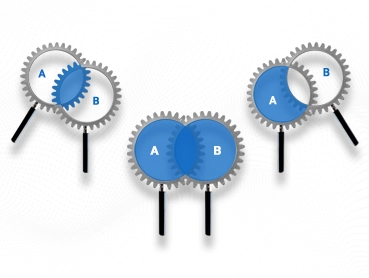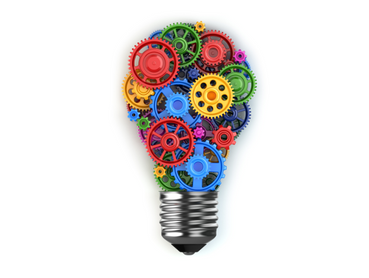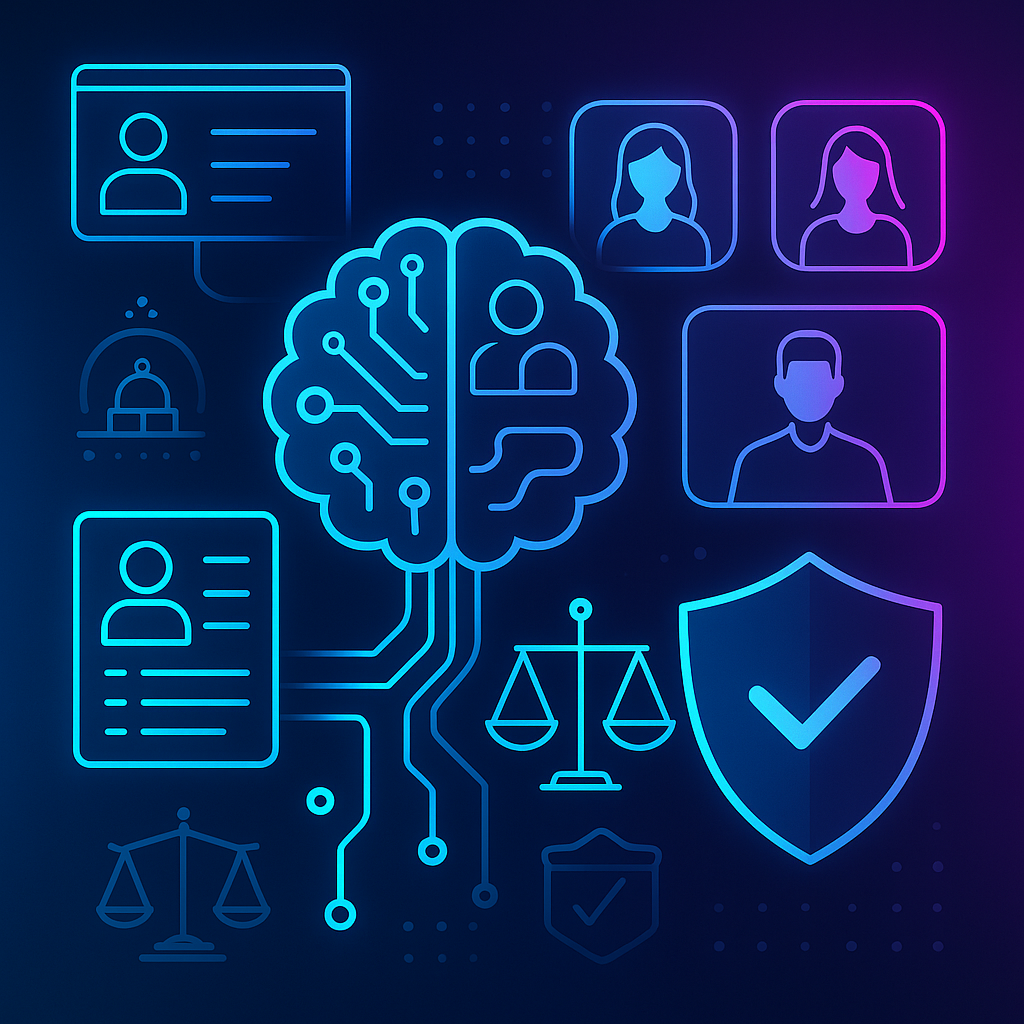The Revolution of AI in Recruiting: Friend or Foe?

The world of recruitment is experiencing a seismic shift, driven by the emergence of artificial intelligence (AI) powered solutions.
While the hot topic of AI and the potential of it replacing human recruiters has sparked concern across the talent acquisition landscape. In reality, it’s the opposite, recruiters leveraging AI can be more efficient and achieve better outcomes than those resistant to the change and evolution of technology.
The New Age of Recruiting
In a competitive talent market, organizations across industries are looking to enhance their recruiting processes to find better talent, faster.
We conducted a survey of nearly 300 talent acquisition and human resource leaders to collect comprehensive insights into the future of AI in recruitment.
The main challenges recruiting teams face revolve around delays in time to submit and time to fill roles due to time-consuming manual processes. When using traditional sourcing methods, the average recruiter spends anywhere from 10 to 12 hours per job.
78% of leaders reported that most of their team’s time is spent sourcing.
In a fluctuating economy, there is no room for time or money wasted. So, when a job stays open for longer than the standard 23 to 26 days, the organization will begin to miss out on the value that role contributes.
Only 4% of the leaders surveyed were able to fill roles in less than 39 days.
For the rest of respondents, the average time to fill roles varied from:
- 40 to 59 days – 25%
- 60 to 79 days – 32%
- 80 to 99 days – 36%
- 99+ days – 3%
The Power of AI Recruiting Transformation
To improve their time to fill, 64% of human resource teams are evaluating AI solutions that will help them operate more efficiently.
AI in Recruiting
In our Annual State of AI Recruiting Transformation Report, those who have invested in AI, shared the top benefit they saw from using AI-driven solutions:
- 38% – Reduced the time spent on manual sourcing tasks through automation.
- 26% – Enhanced data visibility and data-driven insights.
- 19% – Improved recruiting processes and workflows.
- 17% – Strengthened talent acquisition team collaboration.
While these are just a few benefits of AI, there are endless possibilities for the numerous ways AI can improve recruiting workflows.
Ways to Leverage AI in Recruiting
- Expand Your Talent Pool: Advanced technology can consolidate sources and extend your reach to millions of candidates through a single search.
- Automate Screening and Sourcing: AI can scan through hundreds of resumes, identifying qualified candidates based on pre-defined criteria, saving recruiter’s time, and allowing them to shift their focus to building candidate relationships.
- Enhance Scoring and Ranking: AI-powered scoring and ranking can go beyond keyword matching to provide deeper insights than traditional resume screening, leading to better matches and reducing the risk of hiring candidates who aren’t a good fit.
- Streamline Communication: Recruiters can use generative AI to create email templates, accelerate outreach, and automate follow up messages, saving recruiters time while optimizing candidate engagement. AI chatbots can also improve communication by conducting initial outreach, asking pre-determined questions, and gauging a candidate’s fit to save time, allowing recruiters to focus on in-depth interviews with shortlisted candidates.
- Matching & Recommendation: AI algorithms can analyze a candidate’s profile and match them with suitable job openings based on their skills, experience, and preferences. This personalized approach improves candidate experience and increases hiring success.
While the list of benefits for AI goes on and on, there are plenty of recruiting teams that have not implemented innovative technology or are only utilizing solutions for part of their processes.
Barriers to Adoption
While most talent acquisition teams are considering implementing AI solutions, most have not invested in AI yet.
Based on our AI Recruiting Transformation Survey insights, these are the main reasons that HR leaders have not adopted an AI solution:
- They are not sure where to start in the digital transformation journey.
- They are unclear on the uses and benefits of AI to make a business case.
- The solutions they have assessed do not integrate with their current tech stack or have a long integration process.
For those talent acquisition teams that have invested in AI, they are facing another set of challenges. SHRM reported that 82% of HR leaders struggle with adoption challenges during technology transformation, yielding little to no results.
While AI can help make recruiting workflows more efficient, if you do not invest in the right solution or it is not fully embraced, the impact will be insignificant.
If the technology is underutilized or lacks user adoption, it won’t be worth the investment. That makes finding an AI-sourcing solution that is intuitive and user-friendly key to a successful digital transformation.
If you are in the process or starting to look for an AI solution, then you should read the comprehensive buyer’s guide on what to look for when assessing solutions to maximize user adoption and the return on your investment.
As you can see there are many opportunities and challenges with AI, but the truth is, AI isn’t here to replace the human touch in recruitment.
The real value lies in the ability of AI to improve recruiter productivity. AI will not replace recruiters; instead, it will enhance their performance.
Here are how the best recruiting teams will work in tandem with AI:
Strategic Guidance: Recruiters can utilize AI-generated insights to make informed decisions about talent acquisition strategies, compensation packages, and have better, data-driven discussions with hiring managers.
Building Relationships: AI can’t replicate the human ability to build rapport and trust with candidates. Recruiters can leverage AI-powered insights to personalize their communication and create a positive candidate experience.
Improving Algorithms: Recruiter feedback is essential for AI to learn and evolve, so as AI gives recruiters recommendations, it is critical that users report back on those suggestions.
The Future of AI in Recruitment: A Collaborative Landscape
So, what does the future hold? Imagine a world where AI handles the heavy lifting, leaving recruiters free to focus on the high-value aspects of their jobs:
- Nurturing Talent Pipelines: Recruiters can use AI to proactively identify and engage potential candidates, building relationships and creating a talent pool for future needs.
- Fill Roles Faster with Better Talent: Leveraging AI can automate sourcing and streamline shortlisting so recruiters can find the best fit candidates and fill roles faster.
- Boost Organization’s Performance and Revenue: Using AI to identify and reach the candidate’s most likely to succeed speeds up time to fill. This not only helps staffing agencies generate revenue, but it also helps organizations close critical jobs that impact their company’s performance to reach their goals.
In this collaborative future, AI is empowering recruiters to reach new heights. Recruiters who embrace AI and develop the necessary skills to partner with it will thrive in this evolving digital landscape.
The Road Ahead: Preparing for the AI-Powered Future
The future of recruitment is not about AI replacing humans, but about humans and AI working together. By embracing this collaborative approach, we can unlock the full potential of AI and build a better, more efficient recruitment process for everyone.





